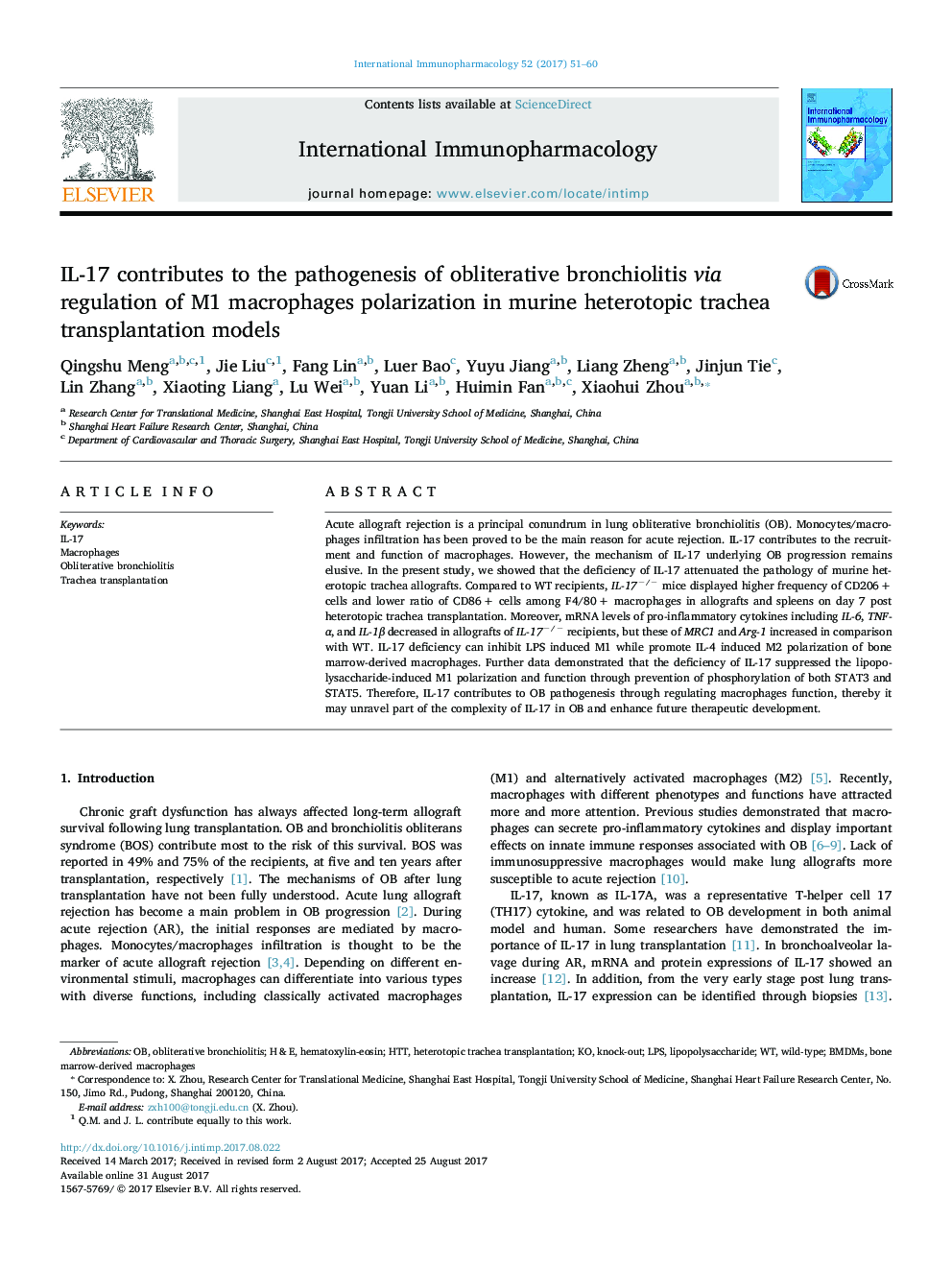| Article ID | Journal | Published Year | Pages | File Type |
|---|---|---|---|---|
| 5555241 | International Immunopharmacology | 2017 | 10 Pages |
â¢Deficiency of IL-17 attenuated the pathology of murine HTT allografts.â¢Deficiency of IL-17 contributed to M2 while inhibited M1 macrophages polarization in vivo and in vitro.â¢Deficiency of IL-17 suppressed LPS induced M1 polarization and function through STAT signaling pathway.
Acute allograft rejection is a principal conundrum in lung obliterative bronchiolitis (OB). Monocytes/macrophages infiltration has been proved to be the main reason for acute rejection. IL-17 contributes to the recruitment and function of macrophages. However, the mechanism of IL-17 underlying OB progression remains elusive. In the present study, we showed that the deficiency of IL-17 attenuated the pathology of murine heterotopic trachea allografts. Compared to WT recipients, IL-17â/â mice displayed higher frequency of CD206 + cells and lower ratio of CD86 + cells among F4/80 + macrophages in allografts and spleens on day 7 post heterotopic trachea transplantation. Moreover, mRNA levels of pro-inflammatory cytokines including IL-6, TNF-α, and IL-1β decreased in allografts of IL-17â/â recipients, but these of MRC1 and Arg-1 increased in comparison with WT. IL-17 deficiency can inhibit LPS induced M1 while promote IL-4 induced M2 polarization of bone marrow-derived macrophages. Further data demonstrated that the deficiency of IL-17 suppressed the lipopolysaccharide-induced M1 polarization and function through prevention of phosphorylation of both STAT3 and STAT5. Therefore, IL-17 contributes to OB pathogenesis through regulating macrophages function, thereby it may unravel part of the complexity of IL-17 in OB and enhance future therapeutic development.
